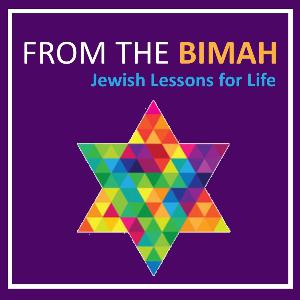Rosh Hashanah Day 2 Sermon: Lifespan and Healthspan with Rabbi Wes Gardenswartz
Description
Last month I got an email that reassured me that all will be well with the world. That joy and blessing are very much alive.
The email attached a photo of two women who are long-time members of our congregation. The younger one is only 103. The older one is 104. They have been friends since they were 12. Do the math, and that is one long, rich friendship. They were having lunch with their daughters. The picture is of the four of them all smiling at their lunch. Both women read the paper every day. Both women exercise every day. Both women talk to their children, grandchildren, great grandchildren and friends every day. Both women are totally up on what is happening in the world. Their beautiful lives, 103 and 104 years old, and still living, feels biblical. And it is. Their lives evoke Moses who, at the end of his life at the age of 120, is described as loh khahatah eino v’loh nas lechoh, Moses’s vision was undimmed and his vigor unabated. He lives, richly, until his last breath.I had always thought that only Moses, and rare people like our 103- and 104-year old friends, get this treatment. Until I read Peter Attia’s book Outlive: The Science and Art of Longevity, which makes the case that all of us can be Moses in the sense that all of us have more control than we might think about living richly all the years of our lives.We all know the word lifespan. Lifespan is the number of years we get to live. But Attia taught me a new word: healthspan. Healthspan is the quality of our health—physical, cognitive, emotional, spiritual, relational—throughout the years of our life. Attia’s main point is that what we do now can impact how we live later. What we do in our earlier years can shape not just our lifespan but our healthspan, not just the quantity of our years, but the quality of our years. The habits we live by in our 20s, 30s, 40s, 50s, and 60s can dramatically affect the vitality of our 70s, 80s, 90s and beyond. Our current practices shape our future years. And this is a decidedly Jewish issue.





